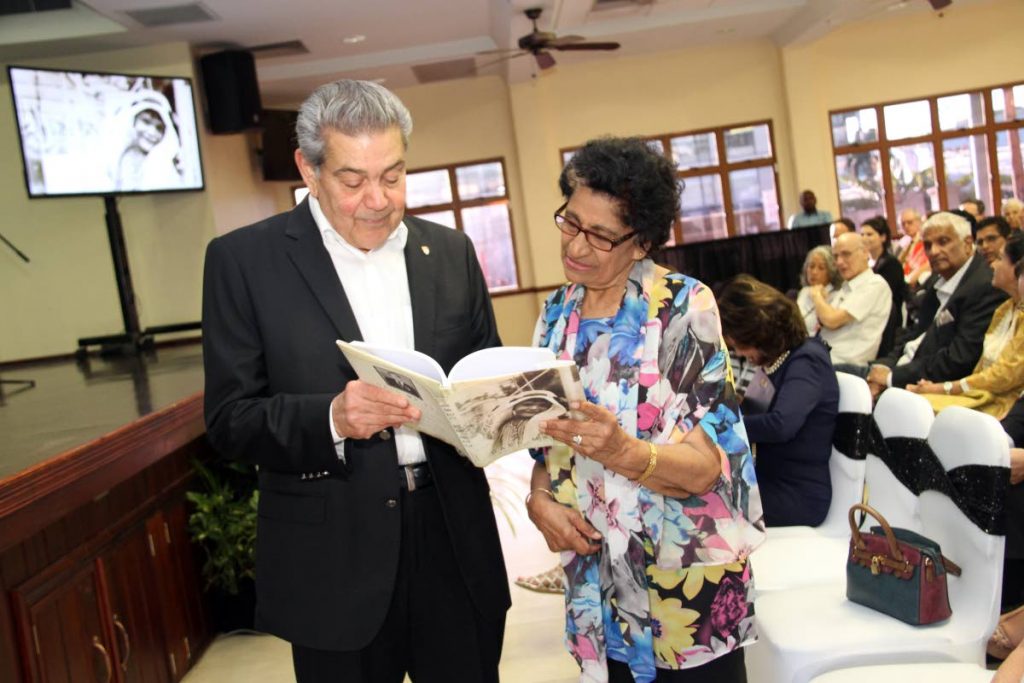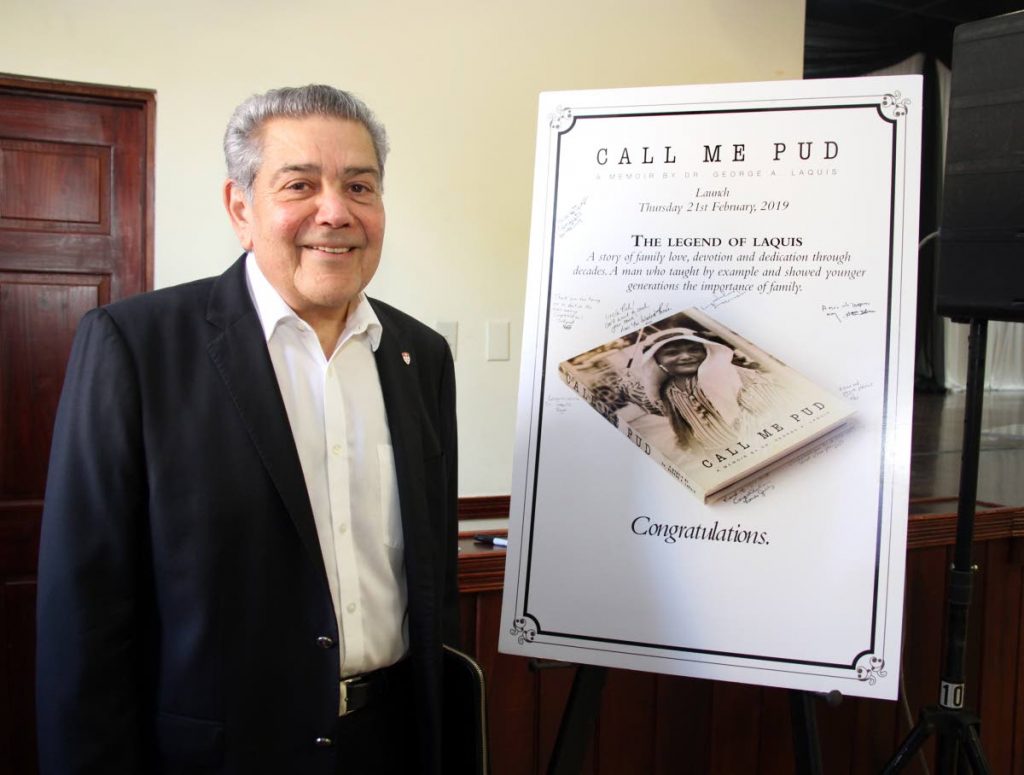Call Me Pud gives insight into Syrian experience in TT

“I’D like to meet the guy they keep talking about,” Dr George Laquis quipped as he good-naturedly brushed off accolades given him at launch of his memoirs, Call Me Pud, at the All Saints Anglican Church, Port of Spain, on February 28.
He hailed author Roslyn Carrington, to whom he had dictated his thoughts every Thursday, as serving as his unwitting therapist to vent and purge his inner demons. Earlier, she had said Trinidadians were very nosy about each other’s business, just as everyone, indeed, had their story to tell.
Recalling her talks about the Trinidad of yesteryear with her late grandfather, Fred Hull, she said, “With Dr Laquis, it was like a second chance to talk with my grandfather again.”
She said "Pud" was a childhood name for Laquis, after a comic-strip character.
Laquis’ daughter Josephine Laquis-Rodriguez, who acted as MC, said the book was deeply personal but had lessons for everyone, including the doctors’s 12 rules for living, written just before he went into life-and-death surgery, “In case I didn’t make it.” These rules essentially advise people to perform do-good projects for the right reason; live modesty; eat moderately; exercise mind, body and soul; be considerate and kind; and act only after deliberation.
Call Me Pud focuses on the theme of identity and a sense of belonging, using the life of Laquis. It does that by touching on a variety of topics such as the historical migration of people from Lebanon and Syria to TT, how members of this immigrant community inter-related with each other, mainly in terms of family and business dealings, and Laquis’ experience in visiting Canada to practise as a young doctor and in visiting his ancestral land.
The breadth of the easy-to-read book is its strength, but also its weakness. It gives a taster, but leaves one hungry for more depth.

Laquis says traditionally a Syrian was seen as “the lowest of the low” in TT society, and one of his sons is quoted as saying he felt prejudice in TT but not in North America, yet Laquis also admits to shortcomings in that Trinidadian girls refused to date Syrian men because they knew the men would never marry them.
These themes are worthy of a deeper exploration.
Laquis warns his community of the genetic dangers of intermarriage between close relatives, even as the same names of four or five prominent Syrian/Lebanese families continually crop up in the book.
Likewise, while in the book Laquis repeatedly says his family (to whom the book is dedicated) is the most important thing to him, if it had given some real anecdotes of the successes and failures of Syrian/Lebanese parenting skills, this would greatly benefit a wider society whose values and norms are now in flux.
Laquis touches on events of history, such as the George Chambers general-election win of 1981, when his own brother Dr Joe Laquis, for the People’s National Movement (PNM), vanquished the late Karl Hudson-Phillips in Diego Martin Central. He expresses his regret at the Syrian/Lebanese community (mainly Christian) doing little to help newly-arrived immigrants to TT (mainly Muslim) from the Syrian war, unlike yesteryear when new arrivals were given bundles of cloth to peddle.
Again, maybe another study could explore these topics in more depth – that is, the relationship of that community to the politics of TT and to the life of Syria.
One valuable lesson Laquis shares was the story of his own battle with his health, having had part of his tongue surgically removed because of cancer and having a heart attack at 54, just after agreeing to pay off his son-in-law’s mortgage. He shares his subsequent lifestyle changes, such as cutting out sugar and refined flour and replacing constant cigarette smoking with a one-a-day cigar.
Laquis also spells out his role in helping set up the Cancer Society, which had realised it had to reach out to vulnerable women who could probably not afford to take a day off work to travel to the capital for screening.
“We decided two things. First to hell with the doctors; we were going to train the nurses to do the Pap smears. Second, if the patients can’t come to us, we would go to them.”
Overall, Laquis’ record of his journey through life is a pleasant and informative account in itself, and hopefully should spur others to contribute their own stories, so as to help fathom insights into this diverse society.
All proceeds from the book's sales will go towards funding new buildings for the Cancer Society and its hospice in St James, Vitas House.


Comments
"Call Me Pud gives insight into Syrian experience in TT"